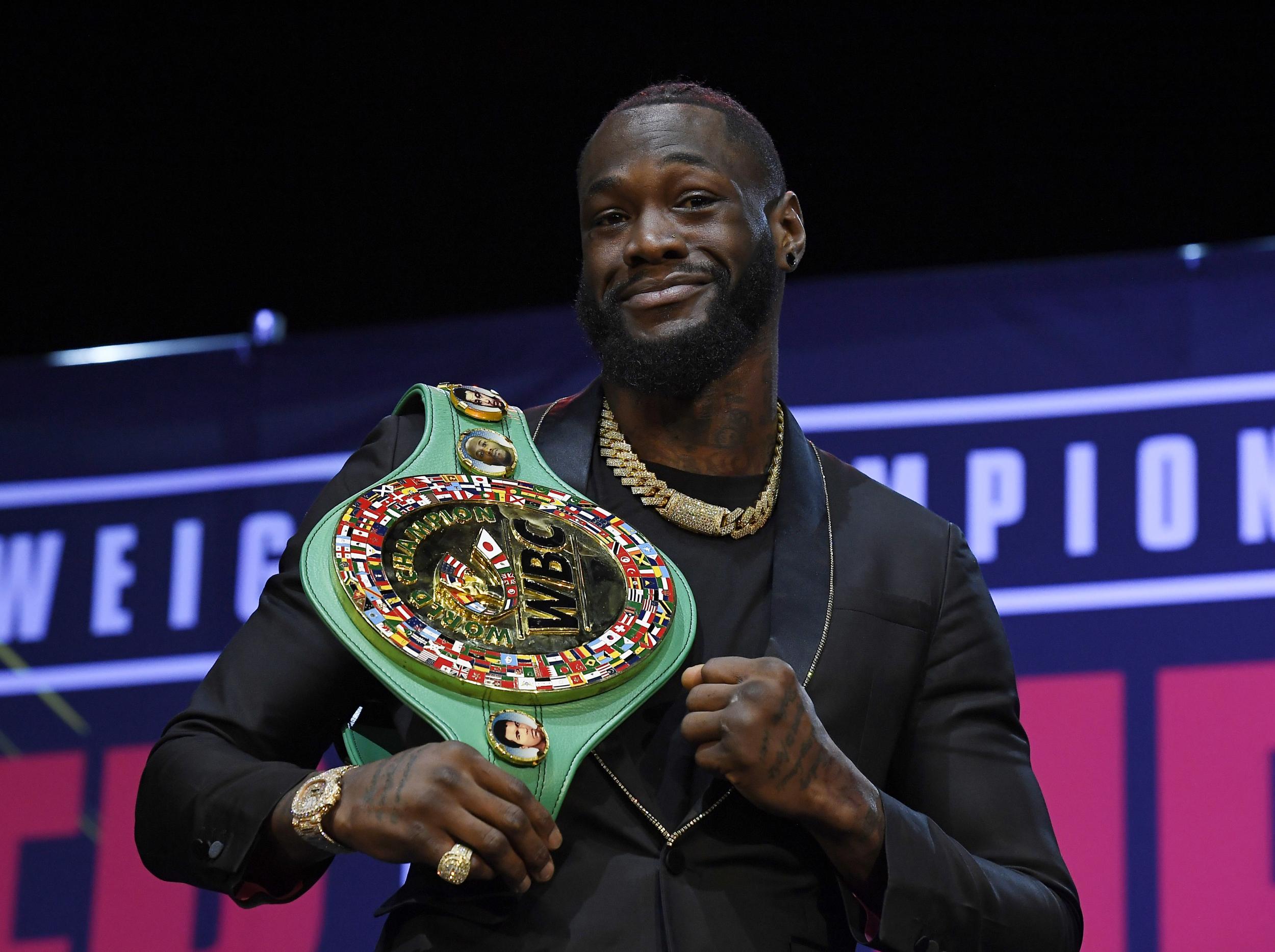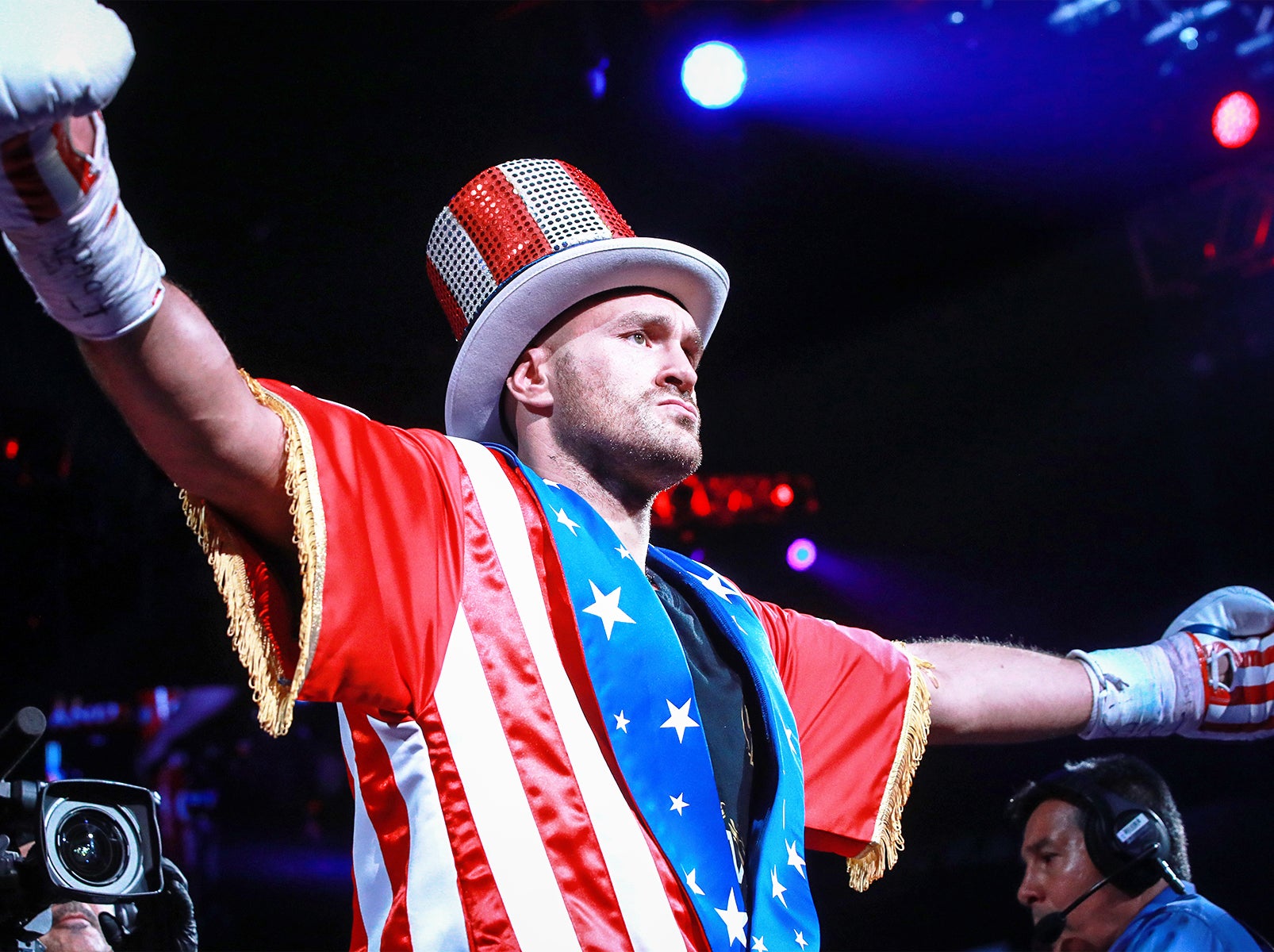Deontay Wilder vs Tyson Fury 2: What belts are at stake for tonight’s heavyweight rematch fight?
Wilder will put his WBC heavyweight title on the line for the 11th time
Your support helps us to tell the story
From reproductive rights to climate change to Big Tech, The Independent is on the ground when the story is developing. Whether it's investigating the financials of Elon Musk's pro-Trump PAC or producing our latest documentary, 'The A Word', which shines a light on the American women fighting for reproductive rights, we know how important it is to parse out the facts from the messaging.
At such a critical moment in US history, we need reporters on the ground. Your donation allows us to keep sending journalists to speak to both sides of the story.
The Independent is trusted by Americans across the entire political spectrum. And unlike many other quality news outlets, we choose not to lock Americans out of our reporting and analysis with paywalls. We believe quality journalism should be available to everyone, paid for by those who can afford it.
Your support makes all the difference.Tyson Fury and Deontay Wilder will face off for the second time this weekend in the long-anticipated rematch to their December 2018 clash.
It has been billed by Fury as the “monster fight of the decade”, but surprisingly few belts are actually up for grabs in Las Vegas.
Wilder, 34, will put his WBC heavyweight title on the line for the 11th time when he walks into the ring against Fury.
The knockout artist from Alabama won the belt in January 2015 when he overcame Haitian-Canadian Bermane Stiverne in the then 37-year-old’s first title defence.
It was a unique fight in Wilder’s career, as the heavyweight patiently dominated his opponent for 12 rounds, triumphing on the judges’ scorecards 118-109, 119-108 and 120-107.
Undefeated Wilder has obliterated every fighter he has faced in his 43-fight career other than Fury, including Stiverne in the two’s 2017 rematch.
On that night, Wilder put Stiverne to sleep with a left-right combination in the very first round.
Every other major belt has eluded Wilder throughout his career. Wladimir Klitschko held the IBF and IBO titles for nine years and the WBO for seven, coinciding with the period when Wilder was breaking onto the scene.
The WBC belt was held by Wladimir’s brother Vitali from 2008 and the two never fought, opening it up for a newcomer to claim it after the latter’s 2012 retirement, as Stiverne, and then Wilder, did.
Wladimir looked an impregnable force as he controlled fights with his alleged ‘jab and grab’ style, albeit in an era that was not a golden one for heavyweights. He won 19 title fights in a row between April 2006 and April 2015, and was rarely troubled in any of them.
Then along came WBO mandatory challenger Tyson Fury. An oddly tentative Klitsckho was outmanoeuvred on a tense night in Dusseldorf, and suddenly Fury had the WBA, WBO, IBF and IBO belts.
They won’t be paraded ringside in the MGM Grand on Saturday though. Fury, in a maelstrom of addiction and controversy, vacated them in 2016. Anthony Joshua and Klitschko battled for the IBF, IBO and WBA scraps at Wembley and the Brit won.
Joshua later added the WBO title to his roster and won them all back after a blip against Andy Ruiz Jr. Wilder and Joshua, distracted by mandatory challengers like Dominic Breazeale and Alexander Povetkin respectively and locked in years of politicised contractual wrangling, have never fought to unify the division.

For his part, Fury isn’t going to America completely empty-handed. Despite his fall from grace after his win over Klitschko, he remains the lineal heavyweight champion of the world, as he is keen to remind anyone who will listen.
In truth, that title shouldn’t be dismissed out of hand. It may not be possible to wrap the accolade around one’s waist, but it carries a prestige moulded by centuries of history and tradition.
The title refers to whoever is the dominant figure in a division based on a timeline of direct victory over its previous holders, in effect belonging to the ‘man who beat the man’ as a result.
The lineal heavyweight championship is generally agreed to have begun with John L. Sullivan’s victory over Dominick McCaffrey in 1885. Its former holders include Mike Tyson, Muhammad Ali, Rocky Marciano, Joe Louis and Jack Dempsey, among a host of other storied names.

Some have suggested that Fury’s long absence from the sport and belt vacation should preclude him from maintaining the title, but the fact remains that the self-anointed ‘Gypsy King’ has never been bested in the ring since beating then-holder Klitschko.
The Ring magazine has had its own version of the championship since its foundation in 1922. The criteria for its holder has been expanded in recent years to account for inactivity but Fury has never been replaced as the man in control of the heavyweight division. The title was stripped from Fury in 2018, but has never been awarded elsewhere and the 31-year-old remains the number one ranked heavyweight in the world by the publication.
So although the number of belts on offer will not match up to the scale of the super fight, between Wilder’s WBC gong and Fury’s abstract honour there is plenty to gain and lose for the two heavyweights as they come face-to-face again in Sin City.
Join our commenting forum
Join thought-provoking conversations, follow other Independent readers and see their replies
0Comments